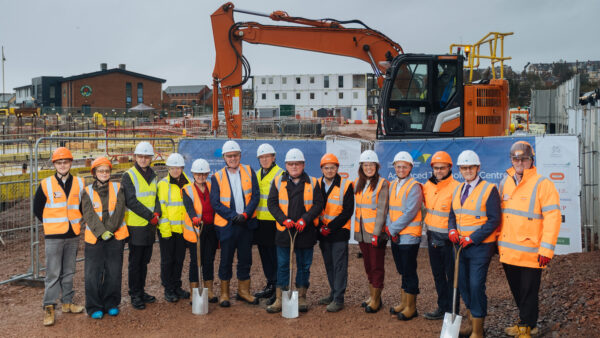
Construction has broadly welcomed Labour’s measures and bills announced in the King’s Speech. But some in the industry have raised concerns about how the new government will bridge the skills gap to achieve the 1.5 million new homebuilding target.
Caroline Gumble, chief executive of the Chartered Institute of Building (CIOB), said on LinkedIn that unless the skills gap is urgently addressed, it will only get worse.
“Housebuilding and construction were front and centre in the speech, with the phrase ‘get Britain building’ heard in the first minute or so,” said Gumble. “However, there’s a lack of detail on support for the breadth of the industry so it can fully contribute to delivering more homes – and an important element should be a focus on closing the skills and people gap in construction.
“As covered in our manifesto, the skills gap is persistent and likely to grow without meaningful intervention. The government’s priorities, as outlined today [17 July], are most likely to be delivered successfully if we recruit more people into this important industry, in which we can offer interesting, purpose-driven and long-term careers.
“It was heartening, however, to hear ‘high quality’ as a specific requirement in the delivery of houses and infrastructure. Quality and safety and tackling the skills gap have been CIOB priorities for some time and we look forward to working with policymakers, parliamentarians and our sister professional bodies to support the sector and deliver the high-quality built environment that benefits us all.”
Introducing Skills England
The government also announced an intention to reform the apprenticeship levy and set up Skills England – a new body that will bring together businesses, training providers and unions with national and local government to train and upskill the country’s workforce.
Rico Wojtulewicz, head of policy and market insight at the National Federation of Builders (NFB), said: “The NFB has been lobbying for apprenticeship levy reform for some time, so we are delighted the King’s Speech agrees with our recommendation.
“We hope to also help the government recognise that their planning reforms are vital to ensure Skills England meets its ambition. In construction, 90% of training capacity is delivered by SMEs, who also train seven in 10 apprentices. Yet smaller builders only build 9% of homes and the largest contractors (tier 1) dominate the procurement process.
“Without ensuring planning and procurement reform enables SMEs, the nation’s main trainers and retainers, workers will not have sustainable, local employment opportunities and Skills England will not be able to deliver its imperative ambitions.”
‘Improving the depth and breadth of talent’
Construction Inclusion Coalition’s chairperson Angela Rushforth also highlighted that if the government wants to succeed in its plans, it will need to act on talent recruitment and retention.
She said: “The Construction Inclusion Coalition has been working with a number of key industry organisations to identify ways to enhance equity, diversity and inclusion within the construction sector to improve the depth and breadth of talent we can draw upon to meet government plans and the demand across the country.
“We believe the construction sector has a more crucial role than ever in the future direction of the country, and that it must strive to reflect the communities the built environment serves.”











